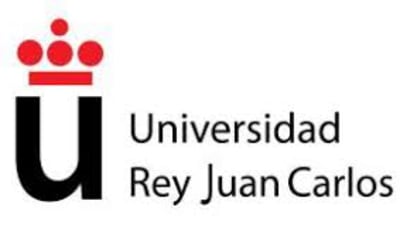
Master in Security, Crisis, and Emergency Management
Universidad Rey Juan Carlos T

Key Information
Campus location
Madrid, Spain
Languages
English, Spanish
Study format
Distance learning
Duration
1 Year
Pace
Full time
Tuition fees
EUR 45 / per credit *
Application deadline
Request Info
Earliest start date
Sep 2023
* resident students, per credit, price; €84.07: non-resident students, per credit, price
Introduction
What knowledge will I acquire with this Master's?
The teachings of the Master are located within the policy applied studies and, in this sense, seek to improve the capacities and competencies of professionals located at the higher levels of the formulation and management of public security, crisis, and emergency policies or at levels technicians not involved in operational tasks, such as those in the study and analysis offices of the national, regional or local governments, but are involved in the analysis and formulation of security policies.
Is this degree official according to the regulations required by the European Higher Education Area?
Yes.
Recommended Profile
Students who have possession of an official Spanish university degree or another issued by a higher education institution of the European Higher Education Area that empowers in the country issuing the degree for access to Master's degrees.
Recommended Requirements:
The preferred entry profiles for this master's degree are:
The Master's degree curriculum and its teaching method have been designed with the aim of providing adequate postgraduate university training for Directors, Managers, Managers, Analysts, Advisors, and Consultants of public security, and of crises and emergencies, preferably dedicated to working in or for public institutions, so that they can contribute to formulate comprehensive policies, manage complex security and emergency plans, and develop crisis and emergency prevention programs; to officials of the Security Forces and Bodies and to members of the Armed Forces who participate or may participate in the formulation of policies, programs or security or crisis management plans. In short, the ideal profile would be that of professionals with experience in the area of security or crisis management,
As a second option, people who have completed undergraduate studies in any of these areas (security or crisis management) and wish to improve the comprehensive vision of the system, strengthen their knowledge from the public policy dimension, and acquire competencies for formulation would also be acceptable. and management of programs and plans in these matters.
Goals
This academic qualification offers broad and multidisciplinary training in public security management, risk assessment and prevention, and crisis and emergency management. The content of its curriculum responds to the demands posed by a dynamic, modern, and increasingly multicultural society in a democratic context in which justice, freedom, and security constitute the axis of the State's political model.
This qualification presents a new model that not only cares about complete training in terminal capacities but also presents and defines the new expert in public security as a knowledge worker prepared to respond quickly to the different requirements associated with different risks.
The design, structuring, and implementation of studies in Security Management, Crisis and Emergencies imply, in short:
- Respond to the needs of civil society with the completion of a university degree that introduces comprehensive and up-to-date training in public security and crisis and emergency management.
- Allow the development of a career to public security professionals who, at present, are limited in their possibilities for promotion and promotion due to the scarce and inadequate academic offer related to their field of action, for which they are forced to access other types of studies little related to their professional work.
- Create operational research models that increase professional knowledge according to the demands for training in the prevention and management of security, crises, and emergencies from different needs.
- Develop knowledge vectors that allow immersion in the areas of information, prevention, and action, in accordance with social demands and pluralism.
Competences
On the one hand, in what refers generically to the expectations regarding the achievements and capacities related to the qualifications (results) that represent the end of each Bologna cycle, the results that the Master's students are expected to achieve are:
- Demonstrate knowledge and understanding that builds on and beyond and improve upon the level typically associated with grades and that provides a foundation or opportunity for originality in the development and/or application of ideas, often in the context of the investigation.
- Being able to apply their knowledge and understanding, as well as their skills, to solve problems in new or unfamiliar environments and in broad (multidisciplinary) contexts related to their field of study. Acquire the ability to integrate knowledge and face complexity and also to formulate judgments based on incomplete or limited information, including the ability to formulate reflections on social and ethical responsibilities linked to the application of their knowledge and judgments.
- Being able to communicate their conclusions and the knowledge and the conceptual framework on which they are based, both to expert and non-expert audiences and in a clear and unambiguous manner.
- Develop learning skills that allow them to continue studies in a largely self-directed or autonomous way.
Regarding the competences that the Master should provide, three generic ones stand out:
- The acquisition of knowledge and skills to explore the dynamics that lead to crisis and insecurity.
- The acquisition of knowledge and skills to handle the best responses to crises and to recognize failures in responses to such crises in order to avoid them in the future.
- The development of attitudes of respect for the system of fundamental rights and freedoms and of commitment to equal opportunities between men and women, with the principles of equal opportunities and universal accessibility for people with disabilities and with the values of a culture of peace and democratic values.
Regarding the specific competences:
- Provide knowledge of systemic analysis of the environment and understanding of the great social trends of our time.
- Provide knowledge and skills to understand the risks inherent to our society and their possible prevention.
- Provide the set of knowledge necessary to understand the complexity, diversity, and dynamic nature of the criminal act, deviant behavior, and threats to public and private security.
- Provide the knowledge and techniques that allow students to manage prospective information and intelligence, in order to make risk forecasts.
- Grant knowledge and skills to face risks inherent to current societies. Specifically: having strategic attitudes and knowing the basic elements of strategic planning and the coordination of preventive security devices, knowing how to direct and manage crisis teams; know and respect the institutional legal environment of the security system in Spain, with special reference to democratic values;
- Transmit the essential foundations of the public policy approach and decision-making models, with special reference to security policies.
- Provide knowledge and techniques on how to generate meaning and direction and how to assist in the correct ending of crises, with the consequent post-disaster management. Specifically, knowing how to manage communication in crisis and emergency situations; have the appropriate attitudes and correct techniques for negotiation, mediation, and resolution of social conflicts).
- Train for the professional use of information and communication technologies in their different fields of action.
- Train for autonomous learning of new knowledge and techniques.
Finally, the transversal and basic competences would be:
- Analysis and synthesis capacity
- Organizational and planning skills
- oral and written communications abilities
- Ability to manage information
- Problem resolution
- Critical and self-critical ability
- I work in an interdisciplinary team

Admission
The requirements for access to the proposed degree are according to article 16, Royal Decree 1393/2007, modified by Royal Decree 861/2010, of July 2:
- To access the official Master's degrees, it will be necessary to hold an official Spanish university degree or another issued by a higher education institution belonging to another State that is part of the European Higher Education Area that empowers there to access teachings of Master.
- Likewise, graduates in accordance with educational systems outside the European Higher Education Area will be able to access without having their qualifications approved, after verification by the University that they accredit a level of training equivalent to the corresponding official Spanish university degrees and empower in the country issuing the degree for access to postgraduate education. Access by this means will not imply, in any case, the homologation of the previous degree that the interested party is in possession, nor its recognition for other purposes than that of taking the Master's degrees.
Aspiring selection:
The selection of applicants is made by the Head of the Master and will be through the presentation of a standardized curriculum with the specific profile required.
Offer of places: 30 places. If the minimum number of students foreseen is not reached in a course, the University may choose not to open the teaching group.
Training Itinerary
| Codes | Subject | Semester | Kind | No. of ECTS |
| 624501 | Current Dimensions of Security | 1st | required | 6 |
| 624502 | Strategic Management of Human Resources. Leadership and Team Management | 1st | required | 6 |
| 624503 | New Information Technologies and Security | 1st | required | 3 |
| 624504 | Strategic Planning and Coordination of Preventive Safety Devices | 1st | required | 6 |
| 624505 | Negotiation, Mediation, and Resolution of Social Conflicts | 1st | required | 6 |
| 624506 | Public Policies and Decision Making | 2nd | required | 6 |
| 624507 | Institutional Legal Scope of the Security System in Spain | 2nd | required | 6 |
| 624508 | Communication Management in Crisis and Emergency Situations | 2nd | required | 3 |
| 624509 | Knowledge Management: Information and Prospective Intelligence | 2nd | required | 6 |
| 624510 | Advanced Security Studies | 2nd | Optional | 3 |
| 624511 | Advanced Studies In Crisis and Emergencies | 2nd | Optional | 3 |
| 624512 | Final Master's Project | 2nd | TFM | 9 |